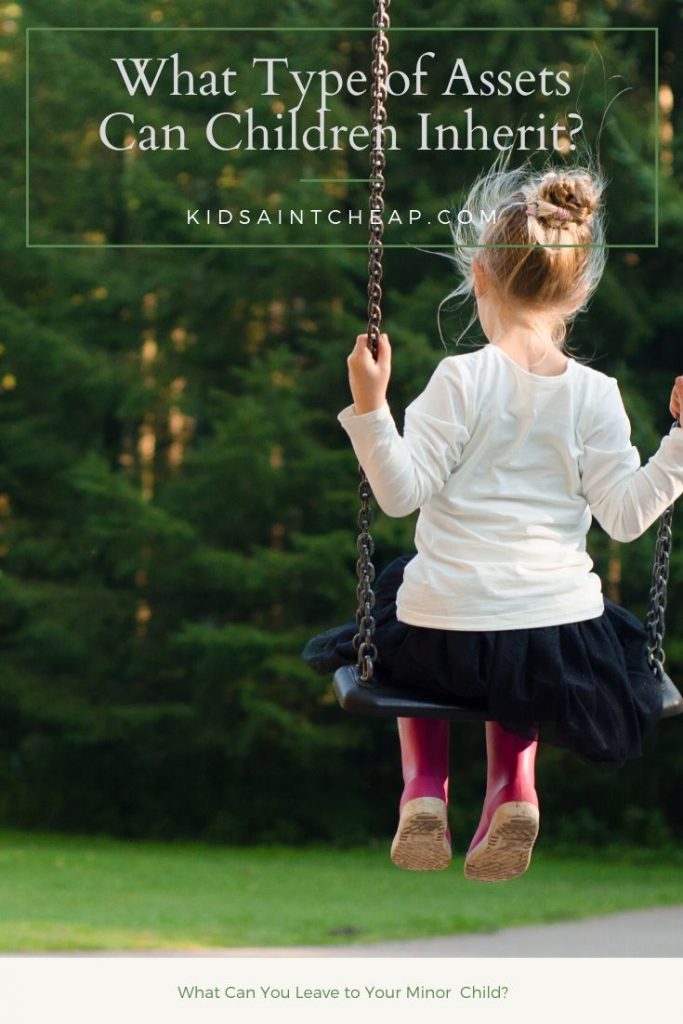
It might start with a few offhand comments or changes in behavior, but before long, it becomes clear something is shifting in the family dynamic. If your parents are acting a little different around their grandkids or suddenly going quiet about financial topics, it could be more than a coincidence. In fact, they may have already decided to leave everything to the grandkids—and just haven’t told you yet. While you don’t need to panic, being aware of the signs can help you understand their mindset and open the door to honest conversations before surprises show up in a will.
1. They Only Talk About “The Future” in Terms of the Grandkids
When your parents bring up “the future,” do they always steer the conversation toward the grandkids’ college, careers, or milestones, while skipping over anything related to you? This is one of the earliest clues that they may leave everything to the grandkids. They see their legacy continuing through the younger generation and may be emotionally (and financially) investing accordingly. If every dream they describe skips over you and lands on your kids, it might not be unintentional.
2. They’ve Started Putting Money Directly Into Grandkid Accounts
Setting up savings bonds, 529 plans, or custodial accounts is a great way to support the next generation. But if your parents are investing thousands into your child’s future and skipping conversations about your own financial planning, it may be a clue. Choosing to leave everything to the grandkids doesn’t always start with a will—it often begins with action. The more they invest in your child’s future now, the more it may signal what’s coming later.
3. They Avoid Talking About Their Will With You
If you’ve tried to discuss estate planning or inheritance and your parents change the subject or give vague answers, that’s a sign that something might be up. Silence doesn’t always mean avoidance—it can also mean decisions have already been made. When parents plan to leave everything to the grandkids, they may sidestep difficult conversations to avoid conflict. Their hesitation can be as telling as the words they aren’t saying.
4. They Refer to the Grandkids as “Their Legacy”
The word “legacy” gets thrown around a lot, especially in emotional family moments. But if your parents specifically describe their grandkids—not their children—as their lasting impact, it may reflect deeper estate choices. It’s a subtle but powerful shift that often comes with re-prioritizing financial plans. While it can feel personal, it’s often more about their vision than your value.
5. They’ve Stopped Asking About Your Financial Needs
At one point, your parents may have regularly asked about your mortgage, career moves, or retirement planning. If those conversations have faded and been replaced with questions about your child’s education or extracurriculars, that’s a potential red flag. When parents decide to leave everything to the grandkids, their focus narrows. Your financial picture becomes secondary to the next generation’s roadmap.
6. They Dote on the Grandkids in Big, Strategic Ways
Regular gifts and visits are one thing—but if your parents are paying tuition, buying property, or funding major expenses for your kids, that’s another story. These grand gestures may seem generous now, but they often point to a deeper financial strategy. Leaving everything to the grandkids doesn’t always wait until death—it sometimes begins with pre-inheritance spending. And if those same offers aren’t extended to you, it’s worth paying attention.
7. They’ve Started Using Trusts Instead of Direct Inheritance
Trusts can be a smart estate planning tool, especially for managing how and when money is distributed. But if your parents have created trusts exclusively for the grandkids, it may be a strong clue. This approach gives them control over how funds are used, ensuring they benefit future generations directly. If you’ve been left out of those discussions, it might not be an accident.
8. You’re Hearing Hints from Siblings or Other Relatives
Sometimes the truth slips out from someone else. If your siblings, aunts, or cousins are mentioning the will—or dropping subtle comments about the grandkids inheriting “everything”—don’t dismiss it too quickly. Family gossip can be messy, but it often has a seed of truth. When multiple people start repeating the same thing, it’s probably worth looking into.
9. Their Lawyer Has Asked for Your Child’s Legal Info, Not Yours
When estate planners start requesting Social Security numbers, birth certificates, or legal information for your kids—but not for you—it could be more than routine. This kind of detail suggests that your child is directly named in the plan, while you may not be. It’s one of the more concrete clues that your parents have chosen to leave everything to the grandkids. If you’re left out of the paperwork, chances are, you’re also left out of the distribution.
10. Their Tone Has Shifted When Talking About “Fairness”
If your parents have started using phrases like “it’s only fair the kids get a head start” or “we’ve already done enough for you,” that could indicate a shift in their perspective. They may see leaving everything to the grandkids as a balanced decision based on timing, age, or opportunity. This language is often used to justify skipping over adult children in favor of the next generation. It may feel hurtful, but it’s also revealing.
When the Signs Add Up, Start a Conversation
Realizing your parents plan to leave everything to the grandkids can stir up complicated emotions. Whether you agree with their choice or not, staying silent won’t change the outcome. If you’re seeing these clues, it might be time for a respectful, open conversation about their intentions—and your place in the picture. It’s better to understand the “why” now than be blindsided later.
Have you spotted signs that your parents are planning to leave everything to the grandkids? How did you handle it? Share your thoughts in the comments!
Read More:
8 Risks We Never Think About When Leaving Trusts For Children
A Guide for Building A Child Trust Fund
Catherine is a tech-savvy writer who has focused on the personal finance space for more than eight years. She has a Bachelor’s in Information Technology and enjoys showcasing how tech can simplify everyday personal finance tasks like budgeting, spending tracking, and planning for the future. Additionally, she’s explored the ins and outs of the world of side hustles and loves to share what she’s learned along the way. When she’s not working, you can find her relaxing at home in the Pacific Northwest with her two cats or enjoying a cup of coffee at her neighborhood cafe.






